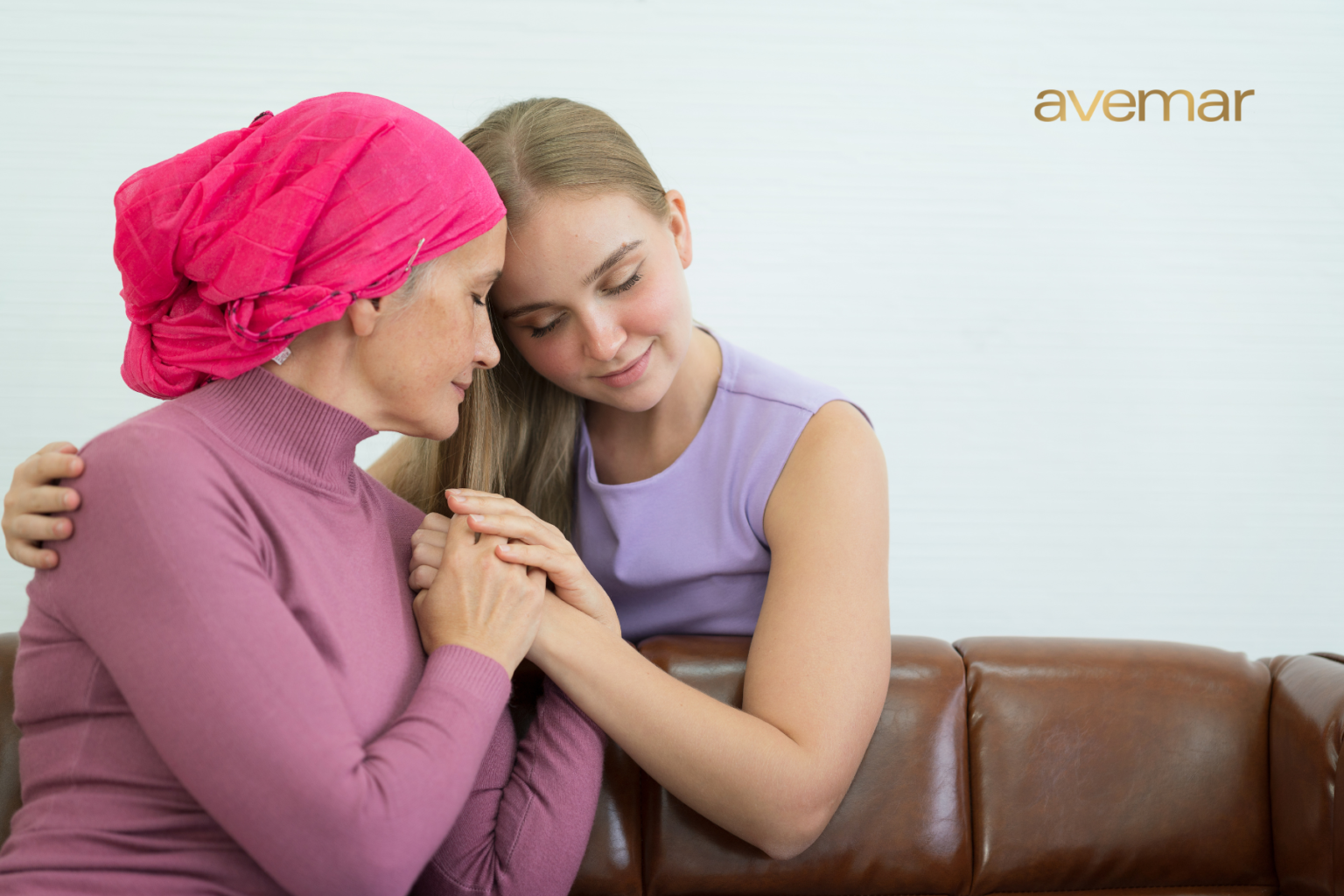We have put together some tips to help you feel more confident to take the first step and to support you in your encounters.
THE FIRST MEETING WITH SOMEONE WHO HAS RECEIVED A POSITIVE DIAGNOSIS IS NOT EASY. MANY PEOPLE CHOOSE TO ADOPT THE OSTRICH POLICY AND DELAY CONTACT BECAUSE THEY ARE UNSURE OF THEMSELVES AND HAVE DOUBTS ABOUT THE APPROPRIATE WAY TO APPROACH AN UNUSUAL SITUATION IN THEIR LIVES.
We have put together some tips to help you feel more confident to take the first step and to support you in your encounters.
Approach gently, do not be intrusive. Send a message first, asking when we can call him or her on the phone
If we have reached him/her by phone, do not ask how he/she is, as this is not easy to answer in his/her situation. For example, you can start with a sincere statement such as "we are sorry for what you are going through, but we and others are here to help you with whatever you need."
Only visit or make an appointment if you really feel like it. Depending on the depth of the friendship or acquaintance, they may not be able to meet anybody yet because it is also very difficult for them to cope with the illness. Be patient, don't take it badly if they are initially dismissive of us.
Never go to a visit with any signs of infectious disease. Always be aware of the patient's weakened immune system.
Make an appointment with them or a relative in advance to discuss the time when you will arrive and keep the appointment. Remember that every day of the week is the same for them, so you can see them during the week or during the day if you can.
Never forget that we are not visiting. We should not expect to be served
Bring a small personalised surprise, such as a good book, a special chocolate, a nice perfume or an interesting magazine. You can even ask them what to take, so it's sure to be a treat. Flowers should be avoided if possible, they are not the best gift in this case.
Don't be afraid to touch when you meet. Feel free to hug them, shake their hand or give them a kiss. Cancer patients often encounter the phenomenon of others avoiding physical contact with them
AS DIFFICULT AS IT MAY BE, DO NOT SHOW DESPAIR OR SADNESS, BUT DO NOT OVERDO IT EITHER: DO NOT BE OVERWHELMINGLY POSITIVE OR IN A GOOD MOOD. TRY TO BEHAVE NATURALLY, WITH KINDNESS AND A SENSE OF SECURITY
Let them talk, be a good listener and show interest in whatever they want to talk about
We should also talk, ask their opinion on different topics, let them know we are glad they helped and we were able to discuss the issue with them
Never suggest that their lifestyle may be related to the disease they have developed. Don't make them feel guilty just because they smoked or had other harmful addictions. Surely they has considered the possibility of these.
We should not stay long during the visit, unless of course the patient specifically requests it and we can see that we are not really a burden. Consider the other members of the family and ask them if they are sure we will not be inconvenienced if we stay longer than planned.
Try to visit more often and more regularly to help the relatives, who can then take a breather or even take care of some errands outside the home during our visit
When we say goodbye, we always let them know that we will be back soon, call and write to them and look forward to hearing from them
At the end of the meeting, hug them again, hold their hand, make them feel that they are important to us
DON'T BE AFRAID TO TAKE THE FIRST STEP, IT IS A GREAT HELP TO CANCER PATIENTS' RECOVERY IF THEY HAVE A CARING, SECURE FAMILY OR FRIEND.

